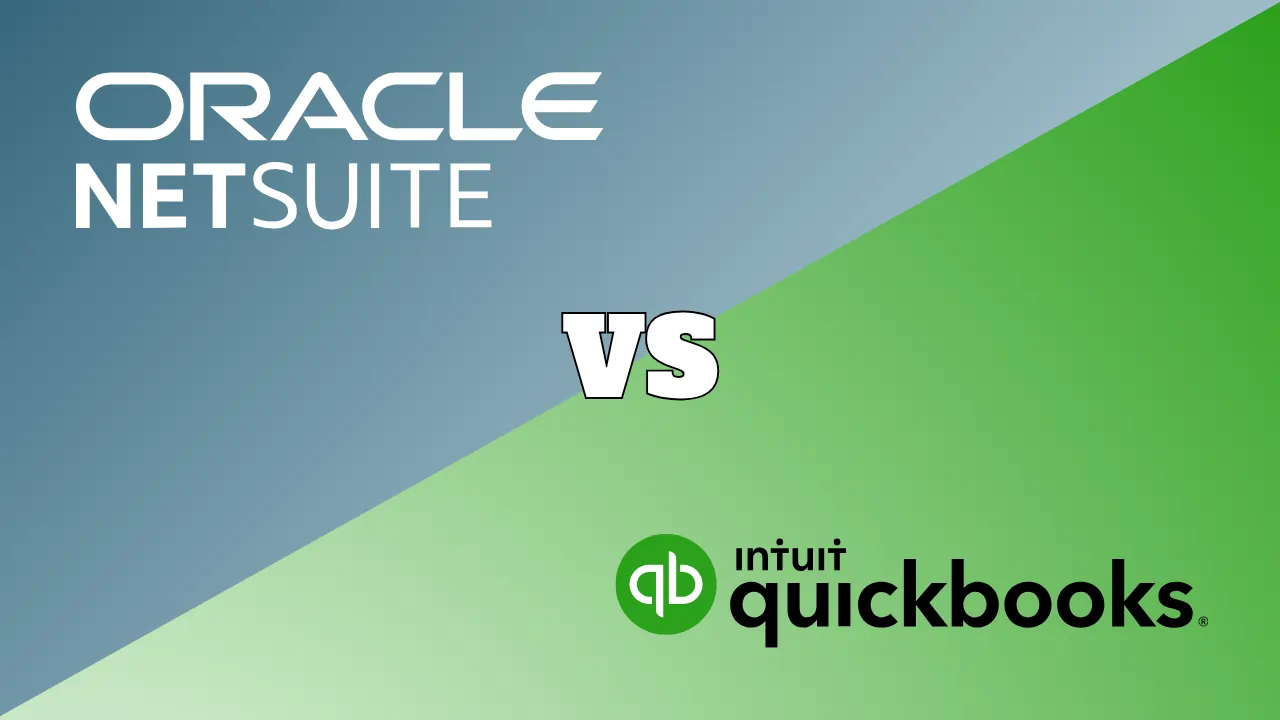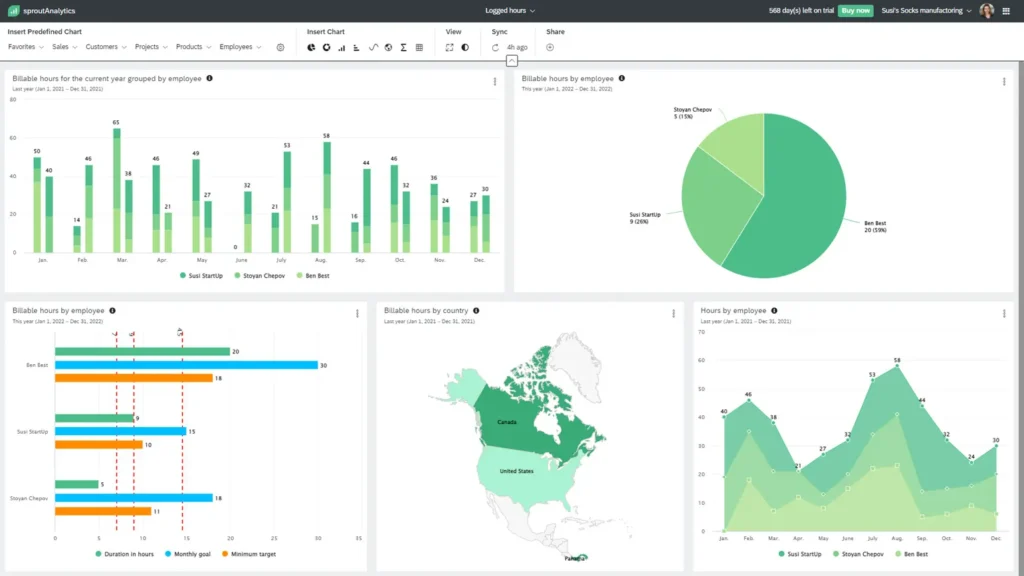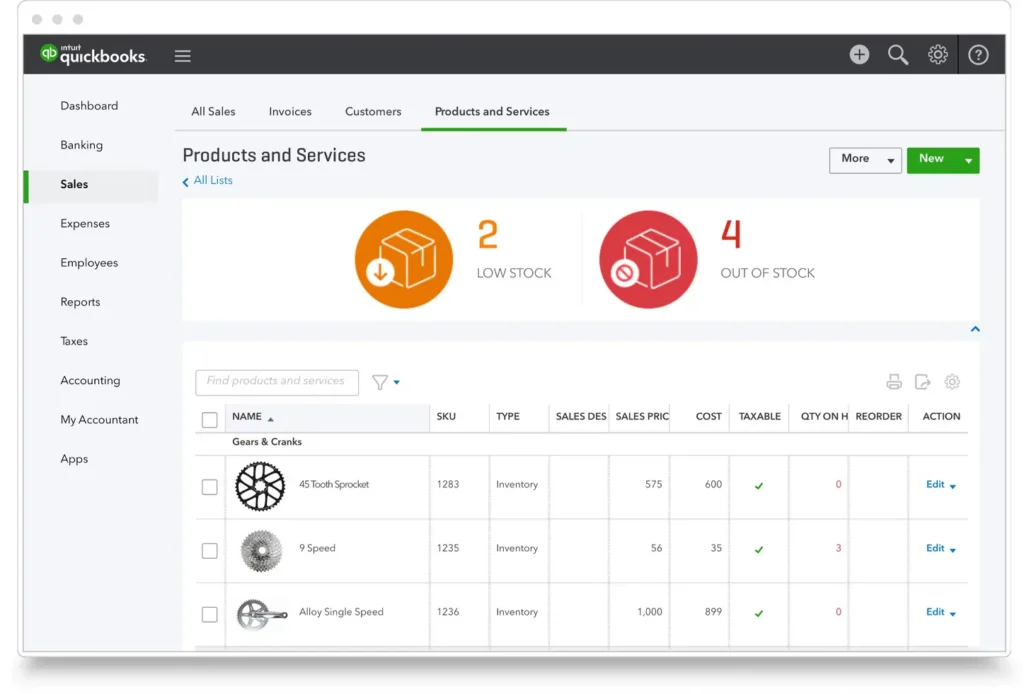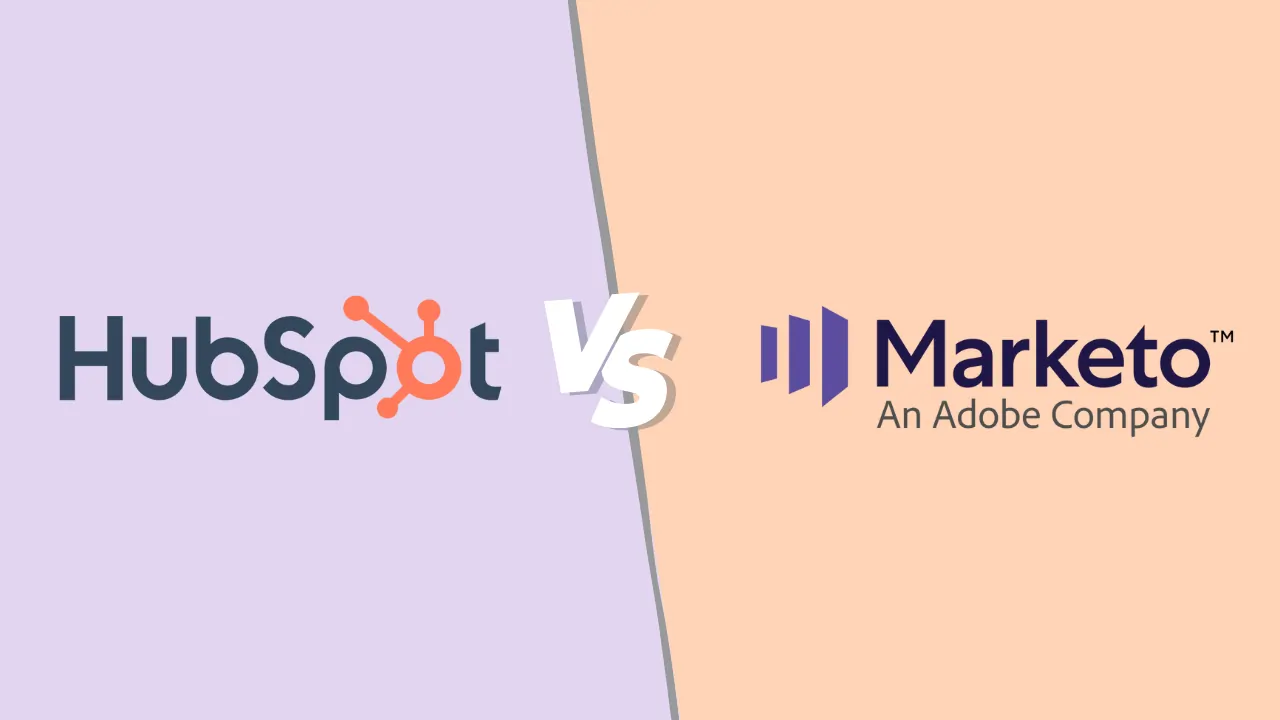NetSuite vs QuickBooks: The definitive guide for scaling businesses 2026

Is your business booming, but your trusty QuickBooks accounting software is starting to feel… cramped? Maybe you’re juggling spreadsheets for inventory, struggling to connect sales data with financials, or finding reporting just isn’t giving you the full picture anymore. If this sounds familiar, you’re likely facing the classic NetSuite vs QuickBooks dilemma.
Making this choice is a big deal. QuickBooks, whether you’re using the cloud-based QuickBooks Online Advanced or the powerful desktop QuickBooks Enterprise, is fundamentally accounting software. It’s fantastic at managing your books, handling invoices, and tracking finances for many small to medium-sized businesses (SMBs). 💯
NetSuite, however, is a different beast entirely. It’s a cloud ERP (Enterprise Resource Planning) system. Think of it as the central operating system for your entire business – financials, sales (CRM), inventory, orders, projects, e-commerce – all connected in one place, giving you a real-time, 360-degree view. 🌍
This guide will break down NetSuite vs QuickBooks in simple terms, using clear comparisons, tables, and real-world examples, so you can confidently decide which platform is right for your business’s next chapter.
Quick comparison: NetSuite vs QuickBooks
| NetSuite (ERP) | QuickBooks (accounting software) | |
|
Primary goal |
Manage entire business operations |
Manage accounting & financials |
|
Platform |
100% Cloud-Based (SaaS) |
Cloud (QBO Adv) or Desktop/Hosted (QBES) |
|
Best for |
Scaling SMBs, Complex Ops |
Established SMBs needing strong accounting |
|
Cost |
💰💰💰💰 (High Investment) |
💰💰 (Moderate Subscription) |
|
Implementation |
Complex (Weeks/Months, Partner Needed) |
Simpler (DIY or Accountant Help Possible) |
|
Customization |
Highly Customizable |
Moderate Customization |
|
CRM |
Integrated Module |
Basic (Requires Integration) |
|
Inventory |
Advanced (Built-in) |
Basic (QBO Adv) / Advanced (QBES Add-on) |
Who is NetSuite for?
NetSuite is generally the right choice when your business complexity outgrows what accounting software can handle. Consider NetSuite if you:
- Are hitting QuickBooks limits: Exceeding user counts (QBO Adv: 25, QBES: 40), list limits, or performance capabilities.
- Need unified operations: Tired of manually syncing data between separate systems for sales (CRM), inventory, orders, and finance.
- Have complex inventory: Managing multiple warehouses, assemblies, bin tracking, landed costs, or demand planning.
- Operate internationally: Require robust multi-currency management, multi-subsidiary consolidation, and global tax compliance.
- Require deep customization: Need workflows tailored precisely to your unique business processes.
- Need integrated CRM & financials: Want a single view of customer interactions, sales pipelines, and financial impact.
- Are scaling rapidly: Need a platform built to handle significant growth in transactions, users, and business complexity without needing another switch later.
Who should stick with (or upgrade within) QuickBooks?
QuickBooks Online Advanced or QuickBooks Enterprise remain excellent choices for many businesses. Stick with QuickBooks if you:
- Primarily need robust accounting: Your main focus is strong financial management, reporting, invoicing, and bill pay.
- Are comfortable with integrations: Happy using separate best-in-class tools for CRM (like Salesforce), advanced inventory, or project management that integrate with QuickBooks.
- Need industry-specific features (Enterprise): Benefit from versions tailored for contractors, manufacturing & wholesale, or non-profits.
- Have simpler inventory needs: QBO Advanced’s basic or QB Enterprise’s Advanced Inventory add-on meets your requirements.
- Prefer lower cost & simpler setup: Not ready for the significant financial and time investment required for an ERP implementation.
- Work primarily within one country: Don’t have complex international operations or consolidation needs.
- Your team & accountant know QuickBooks well: Leveraging existing familiarity can be efficient.
Detailed feature comparison: NetSuite vs QuickBooks
Let’s break down the key functional areas:
Core accounting & financial management
- QuickBooks: This is QuickBooks’ home turf. Both QBO Advanced and QBES offer comprehensive GL, AP, AR, bank reconciliation, financial reporting, budgeting, and multi-currency capabilities. QBES excels in job costing and industry-specific reporting.

- NetSuite: Matches QuickBooks on core accounting but adds deeper financial management layers often needed by larger businesses, such as advanced revenue recognition (ASC 606), multi-subsidiary consolidation, fixed asset management, and sophisticated budgeting/forecasting tools, all integrated.
Customer Relationship Management (CRM)
- QuickBooks: Offers basic contact management. For true CRM functionality (lead tracking, pipeline management, marketing automation), you must integrate a third-party CRM like Salesforce, HubSpot, etc., via the app store.
- NetSuite: Includes a fully integrated CRM module. This provides a seamless flow from lead generation and quoting to sales order processing, billing, and revenue recognition, all within one system. It offers sales force automation, marketing campaigns, and customer support tracking.
Inventory management
- QuickBooks Online Advanced: Provides basic inventory tracking (quantity on hand, cost).
- QuickBooks Enterprise (Platinum/Diamond): Offers Advanced Inventory (an add-on module) with multi-location tracking, bin location, barcode scanning, serial/lot tracking, and FIFO costing. It’s powerful for accounting software.

- NetSuite: Provides enterprise-grade inventory and supply chain management natively. This includes everything QBES Advanced Inventory offers, plus demand planning, warehouse management (WMS), landed cost tracking, work orders, and assemblies – all deeply integrated with financials and order management.
Project management & job costing
- QuickBooks Online Advanced: Basic project profitability tracking via tagging transactions; relies heavily on app integrations for detailed project management.
- QuickBooks Enterprise: Strong job costing features, especially in the Contractor Edition, tracking estimates vs. actuals for labor, materials, and overhead.
- NetSuite: Offers an optional SuiteProjects module (PSA – Professional Services Automation) for comprehensive project management, including time tracking, resource allocation, project billing, and project accounting, fully integrated with financials.
![]()
Customization & reporting
- QuickBooks: Offers moderate customization (custom fields, report modifications). QBO Advanced includes enhanced custom reporting via Fathom. QBES allows more report customization. However, reporting across different data sources (e.g., CRM + Finance) often requires exporting data.
- NetSuite: Highly customizable using its SuiteCloud platform (custom fields, records, forms, workflows, scripting). SuiteAnalytics provides powerful, real-time, customizable reporting and dashboards that can pull data from any part of the system (finance, sales, inventory, etc.) for a truly holistic view.
Pricing & implementation: A massive difference
This is often the deciding factor. NetSuite vs QuickBooks cost and complexity are worlds apart.
NetSuite
- Pricing: 100% custom quote. No public pricing. It’s a significant investment.
- Based on modules needed, user count/type, contract length (multi-year typical).
- Annual software costs often start in the low-to-mid five figures ($20,000+) and scale up rapidly.
- Implementation: Complex & costly
- Almost always requires certified NetSuite implementation partners.
- Involves business process mapping, configuration, data migration, testing, and training.
- Implementation fees often range from 1x to 3x the first year’s software cost.
- Takes weeks or months to complete.
QuickBooks
- Pricing (Approx. annual list prices – check official site for current deals):
- QuickBooks Online Advanced: ~$2,400/year base + per-user fees (up to 25 users).
- QuickBooks Enterprise: Starts ~$1,800-$4,500+/year for 1 user (Silver to Diamond tiers) + cost for user packs (up to 40). Cloud hosting is extra (~$150+/user/mo).
- Implementation: Relatively simple.
- Can often be done in-house or with help from a QuickBooks ProAdvisor.
- Setup takes hours or days, not weeks or months.
- Costs are minimal compared to NetSuite.
Bottom line on cost: QuickBooks is dramatically less expensive and faster to implement. NetSuite is a strategic, long-term investment requiring significant budget and planning.
Final verdict: Which software to choose?
| Choose NetSuite If… | Choose QuickBooks (Adv/Ent) If… | |
|
Your primary Need |
Unified business operations (beyond just finance) |
Robust accounting with potential add-ons |
|
Business complexity |
High (multi-location, global, complex inventory/orders) |
Moderate (strong accounting, maybe advanced inventory/jobs) |
|
Budget |
Prepared for significant ERP investment (Software + Imp.) |
Seeking predictable, lower subscription costs |
|
IT resources |
Willing to work with implementation partners |
Prefer simpler, potentially DIY setup |
|
Growth stage |
Rapidly scaling, hitting limits of current systems |
Established, but accounting software still largely sufficient |
|
Key system priority |
Single source of truth across all departments |
Best-in-class accounting functionality |
FAQ: NetSuite vs QuickBooks
- Is NetSuite owned by QuickBooks?
No. NetSuite is owned by Oracle. QuickBooks is owned by Intuit. They are direct competitors, especially at the higher end of the SMB market. - Can NetSuite do everything QuickBooks does?
Yes, NetSuite covers all core accounting functions found in QuickBooks, but often with more depth and integrated within a broader operational context (like CRM, inventory, order management). - Is NetSuite too complex for a small business?
It can be. NetSuite is powerful but requires significant setup, training, and ongoing administration. If your needs are primarily accounting, QuickBooks is likely a better fit. NetSuite is for businesses whose operational complexity demands an integrated system. - How many users can QuickBooks handle compared to NetSuite?
QuickBooks Online Advanced supports up to 25 users. QuickBooks Enterprise supports up to 40 users. NetSuite is designed to scale to hundreds or thousands of users, depending on your subscription. - Is migrating from QuickBooks to NetSuite difficult?
Yes, it’s a significant project. It involves exporting data from QuickBooks (often needing cleanup), mapping it to NetSuite’s structure, importing it, configuring NetSuite, and training users. This is typically managed by a NetSuite implementation partner and is a major part of the implementation cost and timeline. - Does NetSuite integrate with Salesforce?
While NetSuite has its own robust CRM module, integrations with Salesforce are possible via third-party connectors or custom development if a company prefers to keep Salesforce as its primary CRM. - Is QuickBooks Enterprise a true ERP?
Not in the same way NetSuite is. QB Enterprise is very powerful accounting software with advanced inventory and job costing. However, it lacks the native, fully integrated CRM, comprehensive supply chain management, e-commerce, and other modules found in a true cloud ERP suite like NetSuite. It often relies on integrations for these functions.




